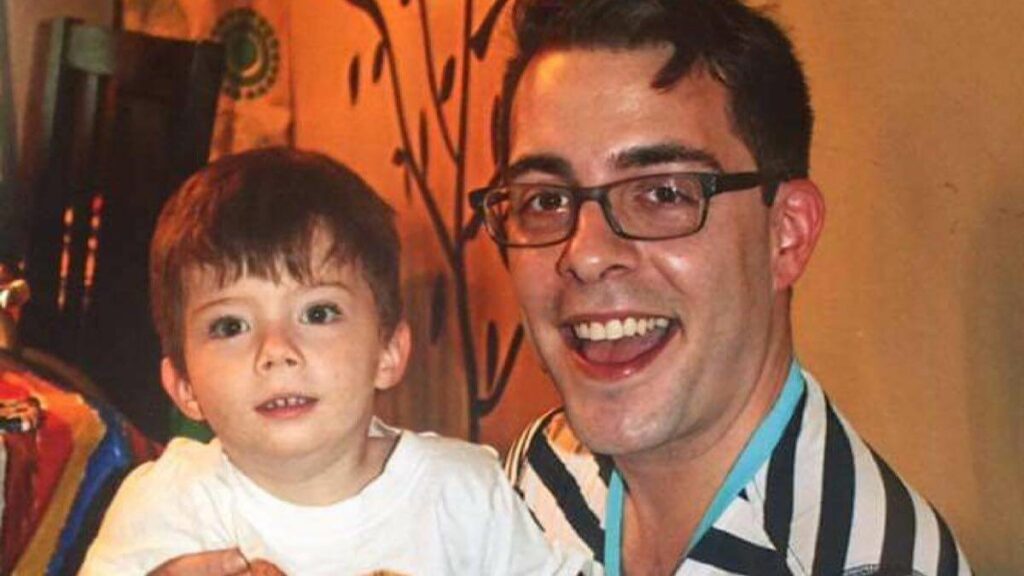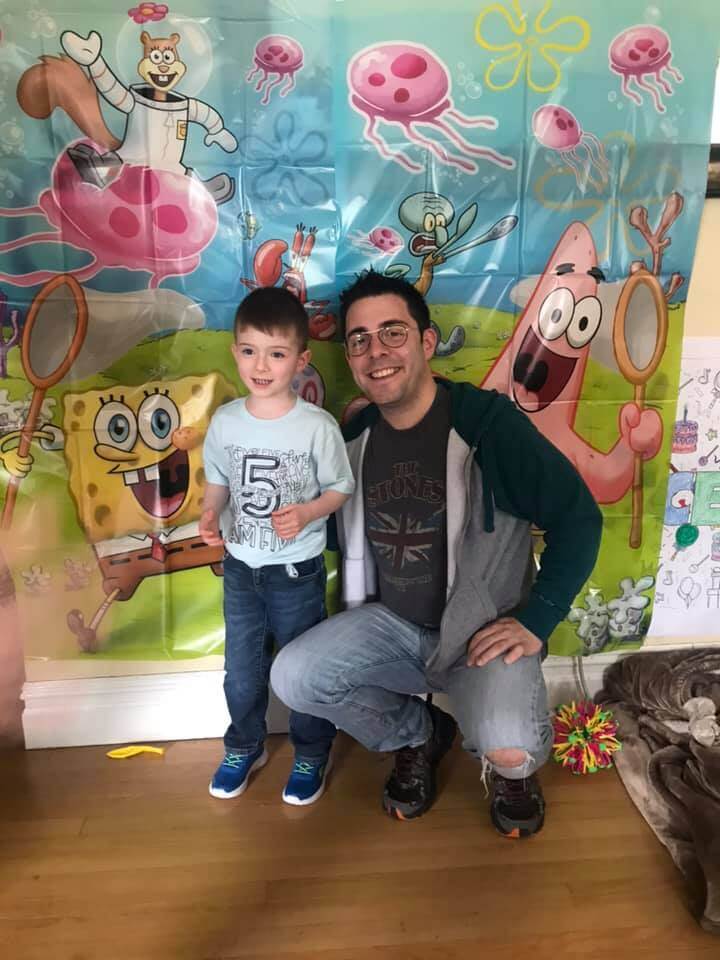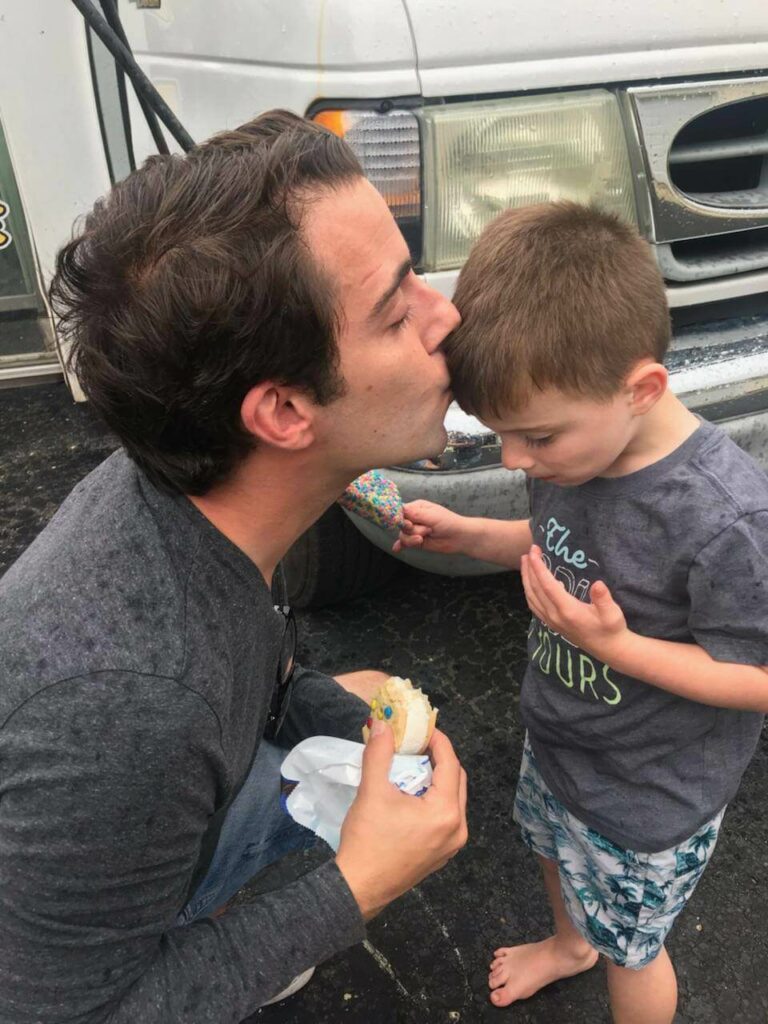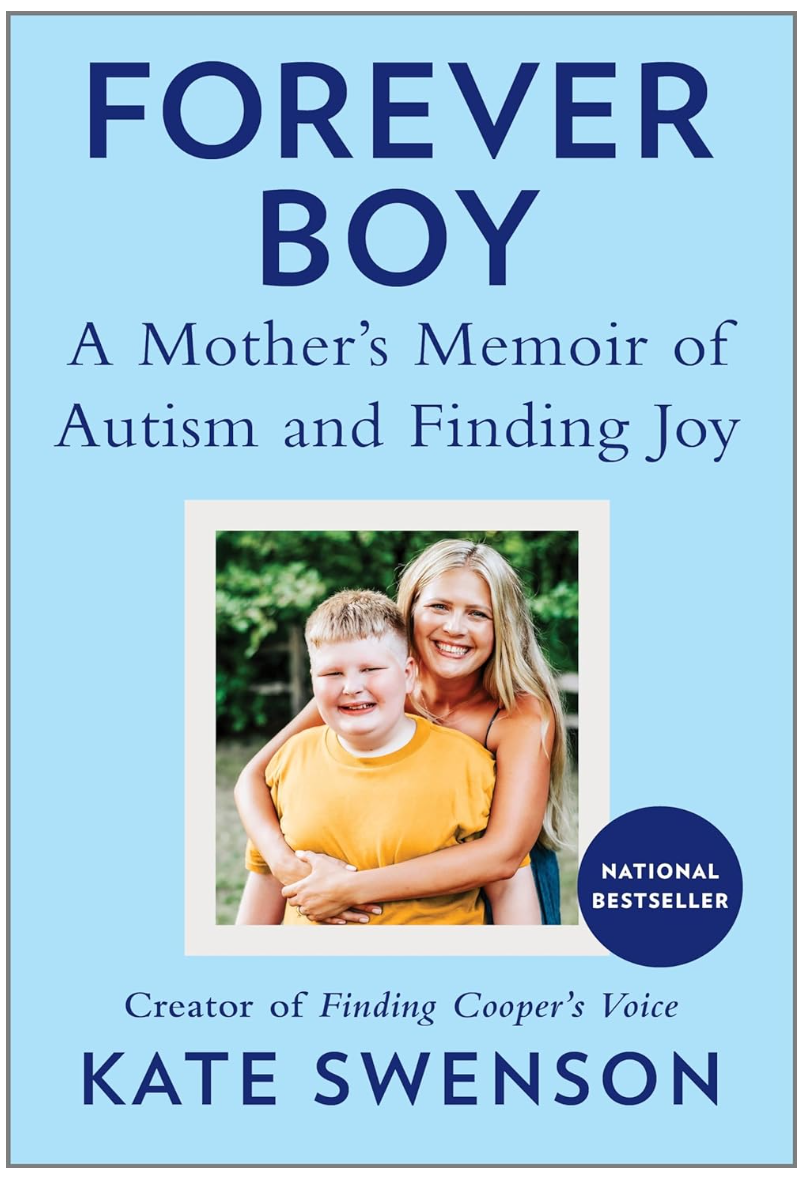Perspective from an Autism Uncle

I remember my Godson Zachary’s first birthday after his severe, nonverbal autism and apraxia diagnosis.
I remember it clearly.
I bought him this Ninja Turtles hat, knowing he hated hats but I thought how that was the one he was going to love.
Spoiler alert, he didn’t.
I think everyone in Zachary’s village has had this kind of moment over the years…which is fine and mostly harmless…but this doesn’t do him any favors.
I think about that moment often.
I don’t remember ever discussing the hat any further but I knew that a gift more suited to him as an individual (sensory activities, books) would be a lot more valuable.
Zachary and his family have enough to worry about and it’s our responsibility to help lighten the load, to help pave a path forward wherever possible.
The role of the immediate family is clear and instant after an autism diagnosis.
Action is often required immediately.
But like everyone says…raising kids takes a village and as part of the village helping to raise those with autism, our roles can depend on the child’s needs and evolve over time.
With this in mind and the holidays upon us, I wanted to share what I’ve learned since Zachary’s diagnosis for those with nephews, nieces, neighbors, and close friends that have been recently diagnosed.
This is what I try to practice on this lifetime learning journey.
Stick to the list
That means leaving the Ninja Turtles hat at the counter. Every Christmas (and birthday) I (or someone else in his orbit) get Zachary the National Geographic Animal Encyclopedia. He brings it everywhere, often tearing out the pages so a new copy is required every holiday (and sometimes between). He immerses himself in the book, its physical presence seems to soothe him.
Even if it’s the same gift every time…stick to the list. The parents know best what he or she will enjoy and similarly ignore, what will be helpful or a nuisance. If you’re going to get creative, be sure to ask about appropriate boundaries or limitations. This tiny act can really make a difference.
Go with the flow
Gatherings might be far and few this holiday season but it’s important to go with the flow. If the child with autism has a meltdown, don’t look at it as a problem or an issue, go with it.
See if there is anything you can do to help either the child or their parents, even if it’s as simple as holding a drink while the parents tend to the child.
Similarly, if the family cancels while they’re on their way, accept it. It probably wasn’t an easy decision for the parent…but forcing something… particularly when it comes to social stimulation…where it won’t fit will ultimately be much harder. This brings me to my next point:
It’s not about you
Many children with autism have weakened immune systems and differing social norms. Especially this year, if the family doesn’t feel comfortable gathering, it’s not about you. On the same token, these families are BUSY! Between therapies, meetings, and appointments on top of daily activities, understand that you or your needs may have to come second.
And then there’s over stimulation..changing routines, environments, even sounds and colors can become quickly overwhelming. If the family of an autistic child provides you feedback on how something in your world or environment can’t work for them, be receptive and adapt to be more accessible if you can.
Ask
This seems clear, but one of the cornerstones to true inclusivity is not just being ‘invited’ but ensuring one’s individual needs are met. I remember the joy Zachary’s mother shared when a friend planning her daughter’s birthday party went out of her way to verify he would be able to come, participate, and enjoy himself.

I am certain that autism parents would much rather you ask about their physical limitations, dietary restrictions, what brings them joy, then guessing on your own. There’s a time and place for Googling..but when it comes to the needs of the individual…Always Ask. Speaking of Googling…
Educate yourself
Listening to and being there for your friends and family is necessary but it’s only the start. When Zachary’s mother started sharing her stories with various sites such as Finding Cooper’s Voice and Scary Mommy, I started following them. There is a ton of literature on the internet and beyond, but nothing is more educational than hearing various stories and experiences from families themselves.
These are the pillars I uphold when it comes to my relationship with Zachary and his family but it’s really important going back to point four…that you always ask the parents and individuals when possible, how you can be the best ally and advocate.
A supportive villager.
I’m sure I had more “Ninja Turtles hat” moments over the years, moments where I could have spoken up on social media and didn’t.
But it’s about trying, learning, and evolving.
We’re in it for the long haul, together, to make sure everyone, especially Zachary and those with autism can live their best lives.
I for one know, that when Zachary opens that Animal Encyclopedia this year (last, so he doesn’t ignore the rest of his presents) we all get a glimpse of pure joy.

Written by, Tim Lindner
Tim Lindner is an English Instructor and business owner from New Jersey and godfather to Zachary Owsiany, whose mom is a frequent contributor!
Interested in writing for Finding Cooper’s Voice? LEARN MORE
Finding Cooper’s Voice is a safe, humorous, caring and honest place where you can celebrate the unique challenges of parenting a special needs child. Because you’re never alone in the struggles you face. And once you find your people, your allies, your village….all the challenges and struggles will seem just a little bit easier. Welcome to our journey. You can also follow us on Facebook, subscribe for exclusive videos, and subscribe to our newsletter.

